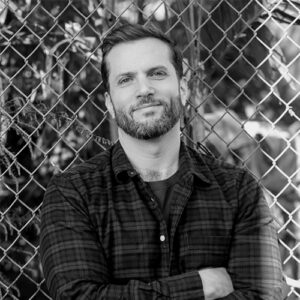
We’ve finally reached the end of this seemingly endless year. Our lives have been turned upside down, so it’s reassuring to find that one thing remains the same: end of year lists. There’s something comforting about having my social media feeds inundated with posts excitedly declaring the top ten albums of the year or the top ten films or books or… you get the picture.
For the most part, I’ve only glanced at these lists (I’ve always been more excited about lists of upcoming entertainment than highly subjective year-end summaries), but they have made me wonder what this year would have been like for all of us with the arts. Imagine 2020 without any of the myriad artistic distractions that have kept us all sane during quarantine. No streamed tv shows and movies and music. No books. No video games. For those of us who have been fortunate enough to survive this year with few ill effects beyond boredom, the arts have entertained us, kept us connected to each other and helped us to fill innumerable hours confined to our homes. It has never been clearer that art is a vital component of any healthy society, but many arts organizations are struggling to survive.
As part of a long list of nefarious agenda items, the then-incoming Trump administration proposed deep cuts to publicly funded arts organizations like the NEA and PBS. These infuriating, if unsurprising, threats to the health of the American arts ecosystem highlighted the importance of art and creativity in all of our lives. I decided to use the podcast to explore the personal bonds each of us forms with our favorite artworks. Since its launch in early 2019, I’ve heard dozens of stories from creative people about the cultural touchstones that have shaped their lives and careers. Their relationships with their favorite cultural works and institutions are unique, but recurring themes have developed across the diverse spectrum of artists and artworks. Of all the essential functions that art serves, there are two that have become a focus in my work: art as a mirror and art as a window.
For people from marginalized communities, seeing themselves represented on screen, on stage or in a gallery can be a truly revelatory experience. If you’ve felt excluded from the cultural conversation because of your race, ethnicity, sexuality, gender identity or any other defining factor, seeing your lived experiences portrayed accurately in a public forum is an affirmation of your existence. Anyone who is a member of an underrepresented community understands the power of widespread cultural representation.
President elect Biden has cited Will and Grace (and other similar artworks) as a key component in shifting the cultural tide towards support for marriage equality. Art can also provide a window into the underreported histories of marginalized communities. How many white people first learned of the 1921 Tulsa massacre through the storytelling in HBO’s Watchmen? Art can fill in the gaps created by the cultural biases in our education system.
Art teaches us so much about ourselves and the world around us. It’s an invaluable tool that helps us to celebrate our differences, strengthen our communities and learn from our shared history. The arts, like many industries, are struggling to survive in the pandemic landscape, but we must not allow them to fail. Your support of your favorite artists and arts organizations has never been more important than it is now. Support the art you love in any way you can. Buy it, stream it, share it on social media. Tell the world why art matters to you. The arts ecosystem has supported us through the most terrifying and uncertain year in living memory. It’s brought joy to us, informed us and provided an essential platform for dissent. We must do everything we can to preserve it.
2020 Has Been [Fill in the Appropriate Word], So What About 2021?


Adam Unze is an actor, voice artist and podcaster based in New York City. On his weekly podcast The Spark Parade, he geeks out with artists and entertainers about the single cultural work that's most inspired them.
Read Full Profile© 2021 TheatreArtLife. All rights reserved.

Thank you so much for reading, but you have now reached your free article limit for this month.
Our contributors are currently writing more articles for you to enjoy.
To keep reading, all you have to do is become a subscriber and then you can read unlimited articles anytime.
Your investment will help us continue to ignite connections across the globe in live entertainment and build this community for industry professionals.